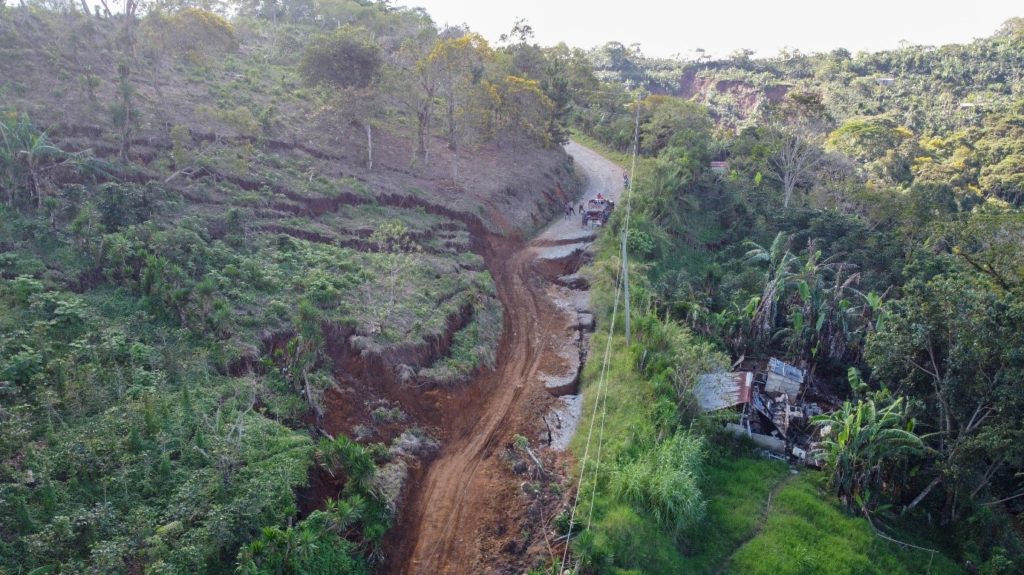In November 2020 Honduras was badly hit by Hurricanes Eta and Iota. Across the Santa Bárbara region of Honduras Fairtrade farmers, who depend on the steep mountain slopes for coffee growing, lost swathes of farmland in landslides as the disastrous hurricanes swept through the region.
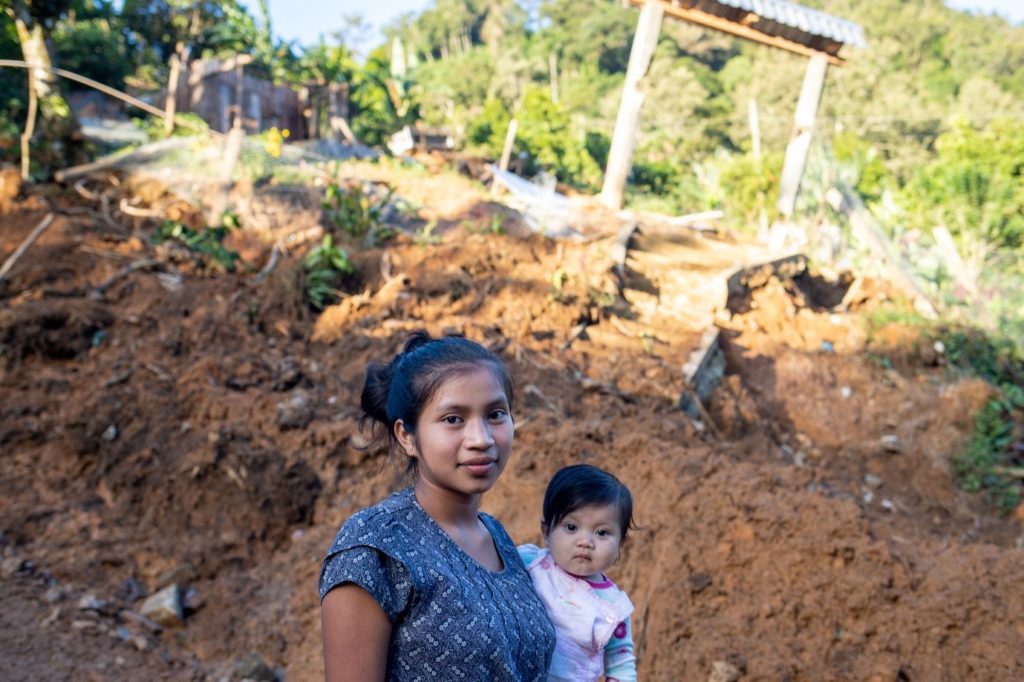
Fairtrade-certified co-operative Montaña Verde is based in San Luis Planes. Lourdes López Vásquez, was 16 years old and caring for her baby Saida, who at the time was 9 months old, when her family had to be evacuated at midnight during hurricane Eta. ‘We heard thundering noises coming from underground, from inside the mountain’ said Lourdes, ‘we were all evacuated, it was dark, we all felt sad.’
Lourdes’ family is one of 60 families affected by the landslide in the village of El Zapote, San Luis Planes, Santa Bárbara. That night six houses were destroyed and another 55 were made unsafe by subsidence and declared uninhabitable.
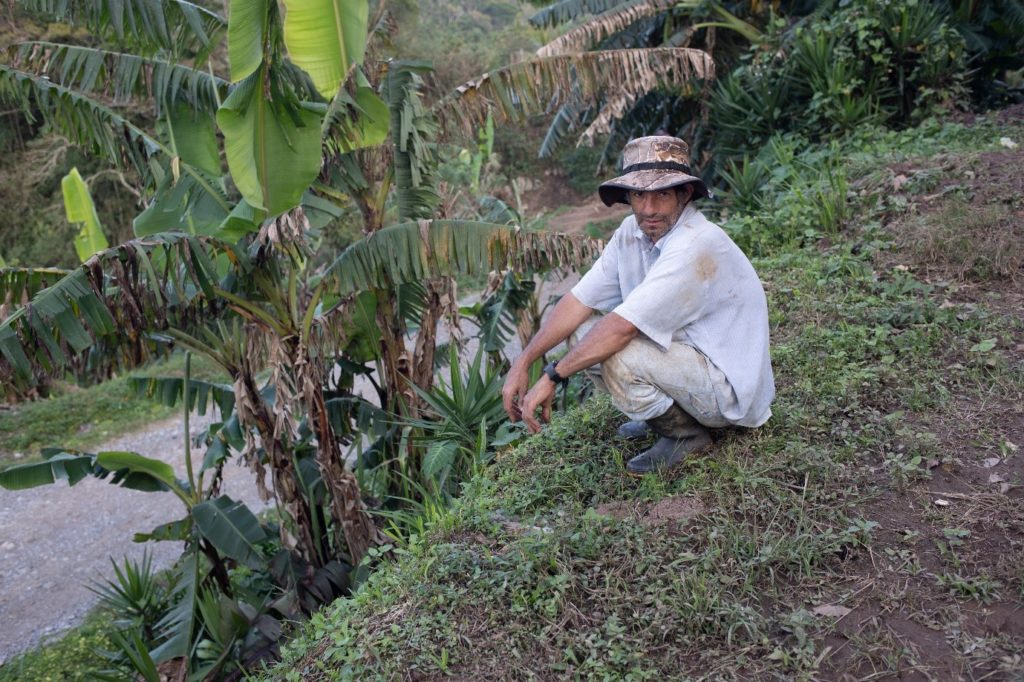
Prudencio Fernández says, ‘There were two big landslides, one each side of the road where we are. All the other families have gone from here now, they’ve left.’ Following the disaster many people left to join the caravan.
He adds, ‘I’m only here to harvest the coffee I can, I’m picking on my own. A lot of the coffee dropped while it was green, there was a lot of rain, amazing amount of rain, so the leaves and coffee dropped. But there’s some left and I’m picking it before I leave.’
Since the hurricane hit, the community has had serious problems getting to their farmland, some of which has been lost in the landslides. They’ve lost topsoil too, which is causing problems, as nutrients are lost from the soil. Their crops are faring badly with the early fall of unripe coffee cherries, leaf drop, root rot, and a proliferation of fungal diseases all affecting the coffee.
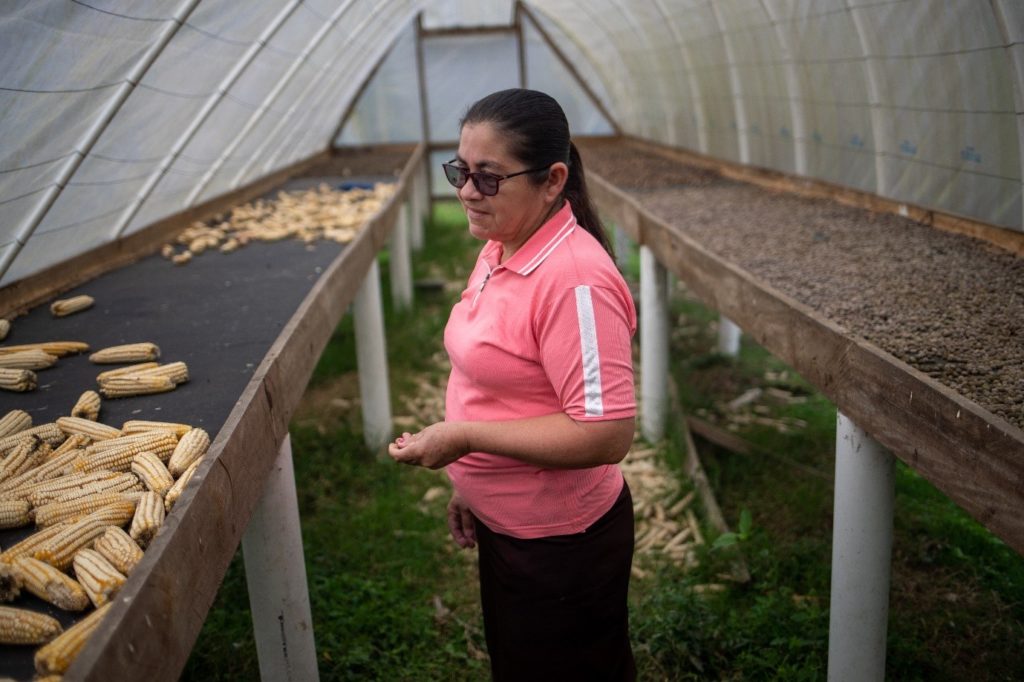
The producers also lost their corn and bean crops that they rely on as their staple food.
Dilma Chávez, a member of the Montaña Verde co-operative says, ‘On my farm and my husband’s farm we have a lot of fissures and some landslides. The roads are badly damaged, some of them you can’t pass. We are having to fix the small roads into the farms ourselves. This year we’ll have a big drop in production, everyone in the co-op will suffer, it’s big. And that affects us all economically.’
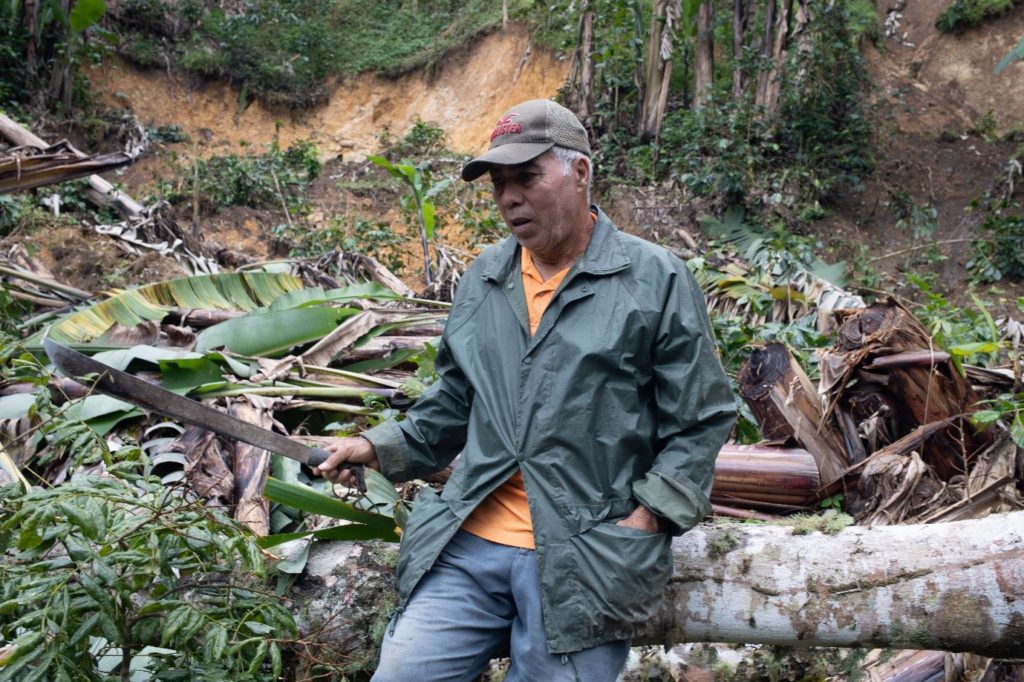
The financial impact has been significant as farmers have lost thousands of coffee plants. Hector Hermilo Perdomo, from COCASJOL co-operative says, ‘Just in my bit of land I’ve lost two manzanas (5 acres), that means 7,000 coffee plants that I’ve lost, that I can’t recover, that’s about 35 quintals of dry pergamino coffee. All this means I’m in difficulties financially, it’s a big loss. We’ve got big difficulties with access to and from our farms here, after the main roads and minor roads were affected by landslides, and that has made it hard to get any product out to market, or get machinery in to fix things on our farms. I’ve had 14 small landslides, and two big ones on my own property.’
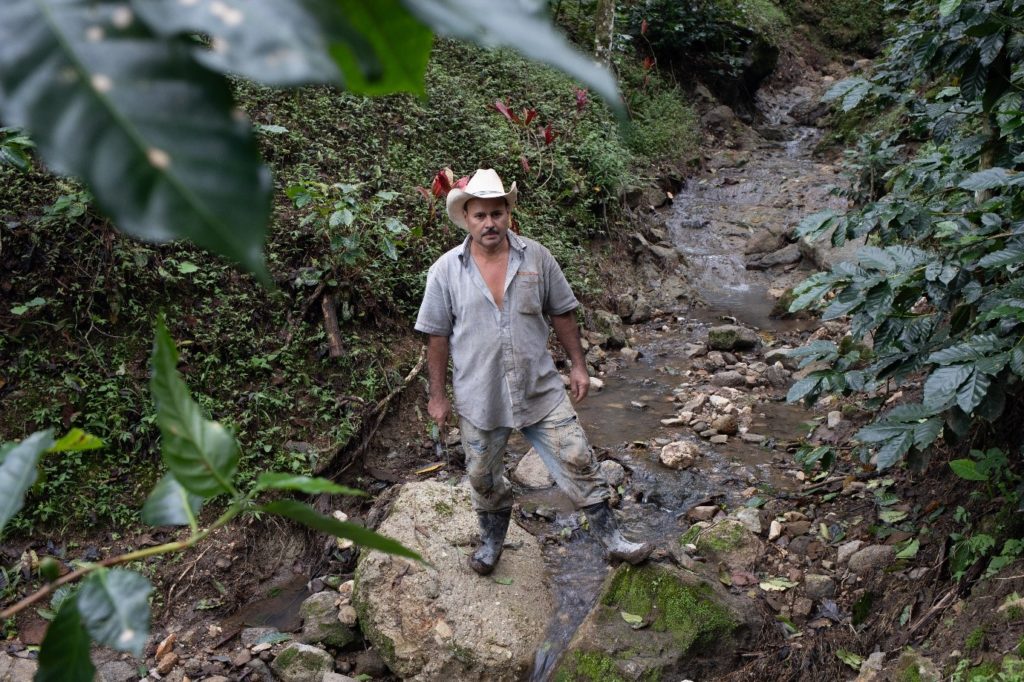
Victor Manuel Pineda Granados is from Aldea El Triunfo, Colinas, Santa Bárbara. Victor is a coffee farmer and is a member of the COCASJOL co-operative. ‘I have 4.5 manzanas, I’ve been affected by the landslides and quite a few trees that have fallen down, three of my big trees went down. With Hurricane Mitch I was badly affected, in the same places, but I planted over the top again, but we aren’t so good economically now, so I don’t know, we’ll see if we can recover from this somehow.’
How cocasjol co-operative is supporting its memebers
When the storms hit, the co-operative saw that the areas of farmland that had well-established trees were less prone to landslides than those with no trees to protect against the landslides. As a result, across the region Fairtrade initiatives are aimed at reforesting land.
Alcides Fernández, General Administrator, of COCASJOL, said: ‘We planted 50,000 trees four years ago, and that has helped us a lot. We set up the nurseries and gave small trees to all the producers in the co-op. We also provided nursery grow bags and seeds so that farmers in more remote areas could set up their own tree nurseries. We use the trees for shading the coffee and protecting the soil. We did that work with our own money, including some of the money from the Fairtrade Premium.’
Even before the hurricanes hit, the coffee farmers here have been impacted by climate change with crop diseases and affecting production, as Alcides Fernández, adds ‘there are harvests that come early, others that come late, it’s a big mess’.
One of the ways the co-operative was supporting its members was to train them on the importance of shade trees. Denis Alexander Perdomo, Vice President of COCASJOL says ‘If there aren’t enough trees in the steep mountainsides and with tropical weather and climate change, that brings stronger and stronger storms and downpours, we really need to plant trees to avoid landslides.’
Storytelling events
[searchandfilter id=”18397″ show=”results”]
